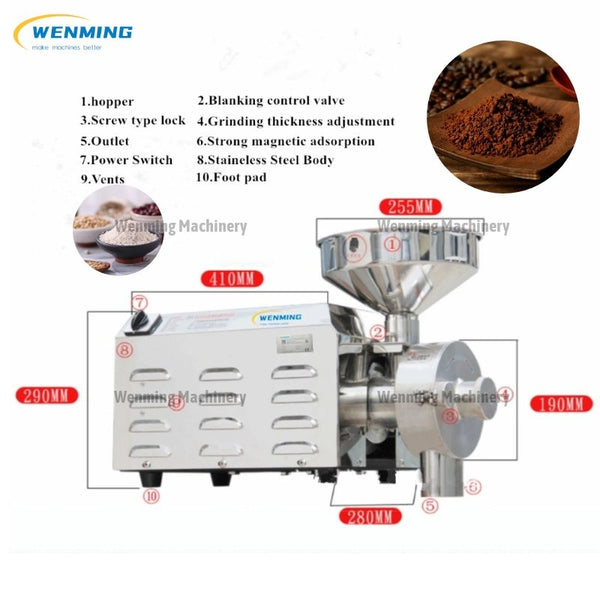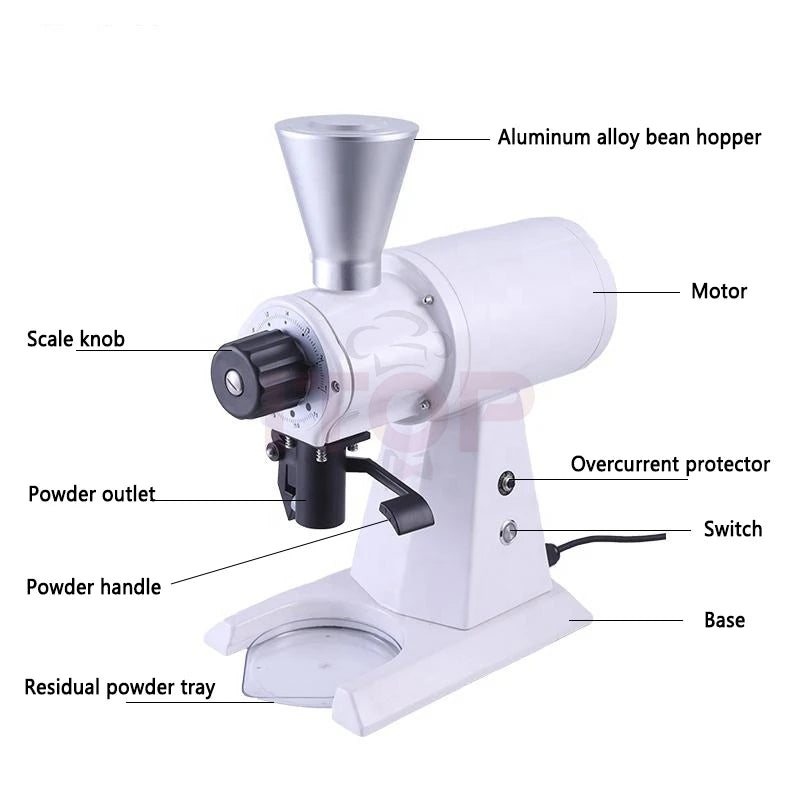Industrial Coffee Grinder Upkeep Suggestions for Long-Lasting Performance
Industrial Coffee Grinder Upkeep Suggestions for Long-Lasting Performance
Blog Article
Exactly How to Select the Perfect Industrial Coffee Mill for Your Business
Picking the suitable commercial coffee grinder for your business is a diverse choice that needs cautious consideration of a number of essential factors. It is vital to examine your certain grinding requirements, including the volume of coffee refined and the wanted grind uniformity, as these elements directly impact taste and consumer complete satisfaction. Additionally, comprehending the different sorts of mills available can dramatically influence your functional effectiveness. As you navigate these considerations, one have to additionally consider the implications of spending plan and upkeep. What various other variables could make or break your choice?
Assess Your Grinding Needs
When picking an industrial coffee mill, one should initially assess their grinding requirements to guarantee optimum efficiency and uniformity. This preliminary analysis includes understanding the quantity of coffee to be refined daily, as well as the wanted work dimension for numerous brewing methods. A high-capacity mill may be needed for businesses offering big quantities of coffee, while smaller operations may discover an extra small version sufficient.
In addition, it is vital to consider the kinds of coffee beans being utilized, as different beans may need particular grinding techniques to accomplish the best flavor account. As an example, oily beans could demand a mill designed to take care of such characteristics without clumping or overheating.
Specialty coffee organizations frequently demand specific grind sizes to enhance extraction and flavor, making it vital to select a mill that can deliver consistent outcomes. Reviewing the offered space and electrical requirements will certainly help in selecting a grinder that fits perfectly right into your operational process.
Understand Grinder Kind
Comprehending the different sorts of commercial coffee grinders is critical for making an informed selection that fulfills certain operational needs. There are mainly two classifications of mills: blade grinders and burr mills.
Blade mills utilize spinning blades to chop the coffee beans, resulting in an irregular grind size - Industrial Coffee Grinder. While they might be more budget-friendly, they are often not ideal for commercial applications where precision is crucial
On the other hand, burr grinders supply a more consistent grind by crushing the beans between two surfaces. They can be additional classified right into level burr and conical burr mills. Flat burr mills provide a regular work size and are commonly favored for espresso preparation, while cone-shaped burr mills are versatile and can manage a variety of mixture techniques, from espresso to French press.
When selecting a mill, consider the particular demands of your service, consisting of desired work uniformity, manufacturing volume, and the sorts of coffee beverages you intend to provide - Industrial Coffee Grinder. Each grinder kind has its benefits and restrictions, so understanding these nuances allows notified decision-making that aligns with operational goals
Evaluate Grind Size Consistency
Accomplishing work size uniformity is essential for creating high-quality coffee, as variations in fragment size can considerably affect extraction and flavor. When choosing an industrial coffee grinder, it is crucial to assess exactly how well the equipment keeps uniformity in grind dimension throughout various sets. Inconsistent work dimensions can bring about uneven removal, leading to a mug that may taste excessively bitter or weak.
To assess work size uniformity, take into consideration mills with functions such as flexible work settings and premium burrs. Burr mills, specifically, excel in creating consistent bit sizes compared to blade helpful hints grinders. The product and form of the burrs play a vital function, with stainless steel and ceramic alternatives offering resilience and precision.

Think About Manufacturing Ability
In the hectic world of coffee manufacturing, taking into consideration manufacturing ability is paramount for companies intending to satisfy need without compromising top quality. The production capability of an industrial coffee grinder straight affects a company's ability to accomplish orders efficiently, take care of stock, and react to fluctuating market fads.
When analyzing production ability, it is necessary to evaluate the grinder's outcome rate, generally gauged in pounds per hour. This dimension should straighten with your business's predicted sales quantity and growth targets. A coffee shop with a high turn over might require a grinder that can refine a number of hundred pounds daily, while a smaller find here sized operation might be sufficient with a lower capability design.
Furthermore, take into consideration the kind of coffee being refined. Different beans and blends may affect grinding speed and efficiency, requiring a mill with the ability of managing varied production demands. It's additionally worth considering the mill's capacity to preserve constant high quality under high result conditions, as any type of fluctuations can affect the end product.
Ultimately, selecting a mill that matches your company's manufacturing ability will certainly ensure you continue to be responsive and competitive to client assumptions.

Spending Plan and Upkeep Variables
When examining the best commercial coffee budget, mill and upkeep variables play a considerable function in the general decision-making process,. An initial financial investment in a top quality grinder can produce long-lasting benefits, yet it's important to develop a clear budget plan that straightens with your organization's operational requirements. Consider both the acquisition cost and potential operational expenses, such as power usage and substitute parts.
Upkeep is an additional essential element that can impact your budget. Industrial coffee mills require regular upkeep to ensure optimum efficiency and durability. a fantastic read Evaluate the producer's referrals for upkeep, consisting of cleaning timetables and parts substitute, as these will certainly impact long-lasting operational expenses. In addition, take into consideration the availability of service and support, as trusted aid can reduce downtime and repair work expenditures.

Buying a grinder that is resilient yet simple to keep can save money with time. While lower-priced alternatives might be alluring, they might sustain greater upkeep costs and reduced effectiveness. Eventually, balancing first expenses with long-term upkeep and operational performance will certainly assist you to the ideal choice for your company's coffee grinding needs.
Final Thought
Choosing the ideal commercial coffee grinder necessitates a complete analysis of grinding needs, mill types, grind size uniformity, production capability, and monetary factors to consider. A well-chosen mill not only enhances the high quality of the coffee created but also contributes to the overall success and success of the enterprise.
Specialty coffee businesses usually require precise work dimensions to improve removal and taste, making it crucial to choose a grinder that can provide consistent outcomes. Apartment burr grinders supply a constant grind size and are typically favored for espresso prep work, while conelike burr mills are versatile and can handle a range of brew methods, from coffee to French press.
When selecting an industrial coffee grinder, it is vital to evaluate exactly how well the maker keeps uniformity in work dimension across different batches. Burr grinders, in particular, stand out in creating uniform particle sizes contrasted to blade grinders.Picking the suitable commercial coffee grinder demands a thorough assessment of grinding requirements, grinder types, grind dimension consistency, manufacturing ability, and financial considerations.
Report this page